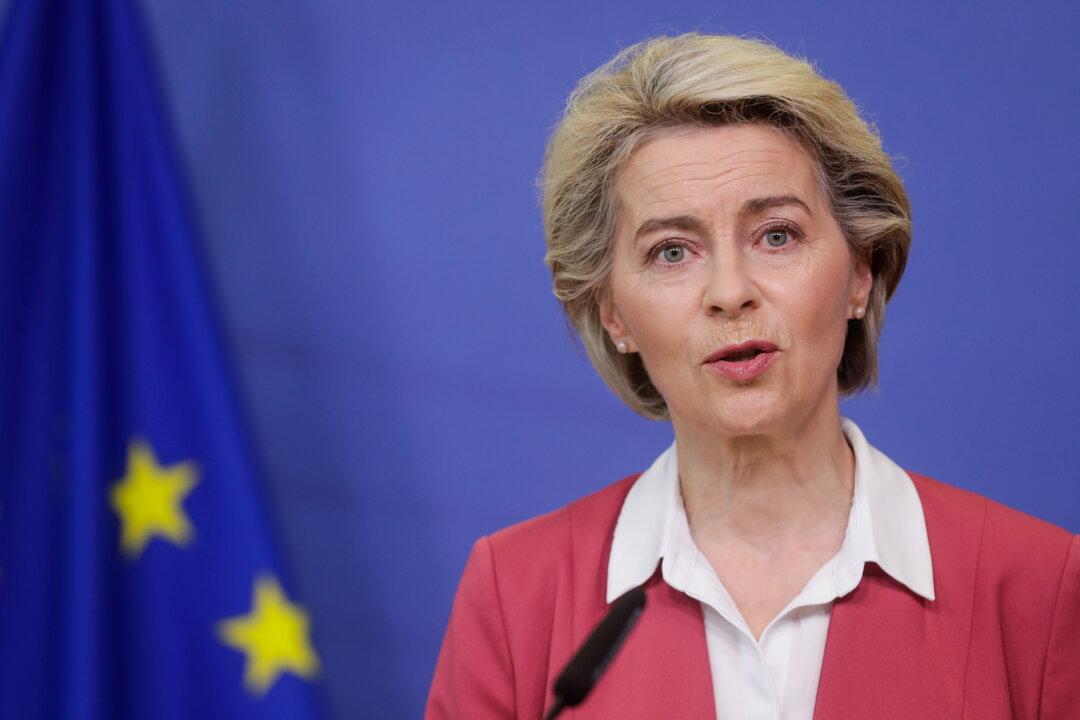The EU announced a ramped-up Afghan aid program that an official said it would seek safety guarantees on the ground and coordination with the United Nations to deliver, as the bloc’s executive and G7 leaders prepare to discuss the crisis in the country.
European Commission head Ursula von der Leyen said the European Union would increase its support for Afghans still in the country and those fleeing it to over €200 million ($235 million) from over €50 million ($58.7 million).





